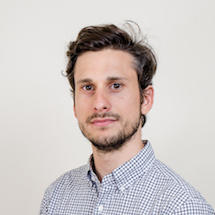
On Tuesday, we welcomed Mathieu Saujot, a researcher at IDDRI, where he coordinates the Lifestyles in Transition initiative.
This webinar addressed Mathieu’s paper on the 10 misconceptions on sufficiency and lifestyle changes. Here is a summary of the meeting :
Starting with the definition of the concept and the difference with efficiency, we had a clear overview of sufficiency as it is defined by the IPCC : “avoid demand for energy, materials, land and water while delivering human wellbeing for all within planetary boundaries”. (Summary for Policymakers, Sixth Assessment Report)
Mathieu Saujot emphasized on the role attributed to citizens, especially with climate conventions and assemblies (cf the Citizens’ Convention on Climate organised by the CESE in France) in the acceptability and implementation of measures. Regarding the current situation, he also stated that we need to “be aware of the fact that in our modern society, it is not easy to think about sufficiency, because the promise of abundance, which is at the heart of our social contract, is exactly the opposite !”
He also mentioned the necessity to reduce inequalities to have successful sufficiency policies : asking more from those who possess and pollute the more. He overturns the bias that the transition would cause trouble in a working society given that our model is already defective.
One part of the discussion was also dedicated to the strength of the local level and to ambitious initiatives such as cutting off advertisement for damaging goods or services. (Haarlem, Lyon or Grenoble)
Mathieu also expressed three ways to develop a transversal approach of sufficiency :
- Experimentation of blocks of a new social contract (donught economy, zero unemployement territories…)
- Citizen participation, how to debate on the transition towards sustainability
- Sectoral transformation e.g. local food policies
Watch the full interview
We will meet again with new panelists on November 8, to talk about the transition and local economic activities, we hope to see you there!
